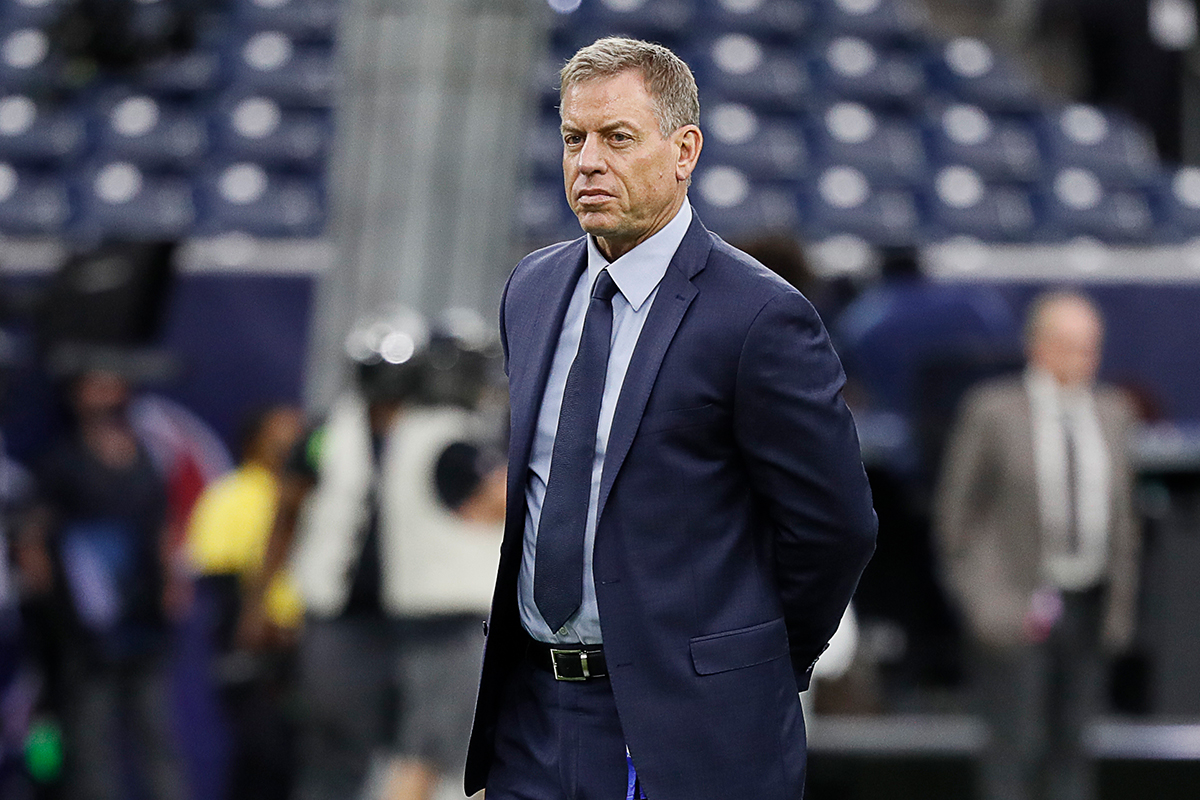Troy Aikman, the former Dallas Cowboys quarterback, is in good shape these days. The Hall of Famer uploaded enough Instagram photos of himself working out on the Peloton, running stairs around Texas and eating nuts that eventually his followers demanded he post his fitness routine.
He shared the full slate on Instagram yesterday:
- Lift weights four days a week
- Perform cardio five to six days a week
- Walk three to six miles on his “off days” from cardio
- Drink one to two gallons of water a day
- Follow a “pegan” diet, designed by Dr. Mark Hyman
- Meditate each morning
- Sleep seven to eight hours every night
- Don’t forget to celebrate life’s little victories (this last one was accompanied by a beer emoji … we see you, Troy)
It’s quite the docket for a 54-year-old, but most impressive is his commitment to holistic wellness. He’s lifting, sure, but he’s also hydrating, putting aside time for recovery, walking regularly and meditating. As Aikman reports, he feels the “healthiest” he’s ever been: “That also includes emotional and mental well-being which I take just as seriously as the physical.”
Also of interest? Aikman’s apparent devotion to a “pegan” diet. Pioneered by physician and New York Times best-selling author Dr. Mark Hyman, peganism steals elements from both paleo and vegan diets. If that seems contradictory, that’s because it is — peganism is an early example of a faddish, “flexitarian” diet, where the majority of the menu is plant-based (about 75%) but meat is not restricted. Peganism prioritizes non-starchy vegetables, fruits, some nuts and seeds, and lots of grass-fed organic meats. Low-mercury fish like sardines and salmon are also allowed.
At the same time, peganism eschewes dairy, gluten, most grains, legumes, sugar, refined oils and food additives. Some of those restrictions, particularly whole grains and dairy, are puzzling to nutritionists. Hyman’s stated goal is to keep blood sugar down and avoid inflammation, but these groups confer critical minerals for the body, like magnesium, iron and calcium. One dietitian wrote on peganism: “The concept of this diet, combined with its number of restrictive rules, will likely make it hard to follow long-term and add to confusion about what to eat and why.”
Aside from potential nutritional deficiencies, peganism isn’t a very accessible diet. Aikman can get his hands on fresh produce and the meat of cared-for livestock, but the majority of the population can’t afford these eating habits. Hyman’s famous line — If God made it, eat it; if man made it, leave it.” — is admirable, as most of America subsists on processed foods, but it’s also a bit unrealistic.
At the end of the day, Aikman will be do just fine on a pegan diet. He’s getting protein, antioxidants and good carbohydrates every day. Some have even compared peganism to a sort of bastardized version of the Mediterranean diet — at the very least, it shares a focus on real, local food, while championing vegetables. Still, it’s important to point out that three-time Super Bowl-winning quarterback Troy Aikman could still look and feel his healthiest on a diet that allows rice and corn.
Whether you’re looking to get into shape, or just get out of a funk, The Charge has got you covered. Sign up for our new wellness newsletter today.
